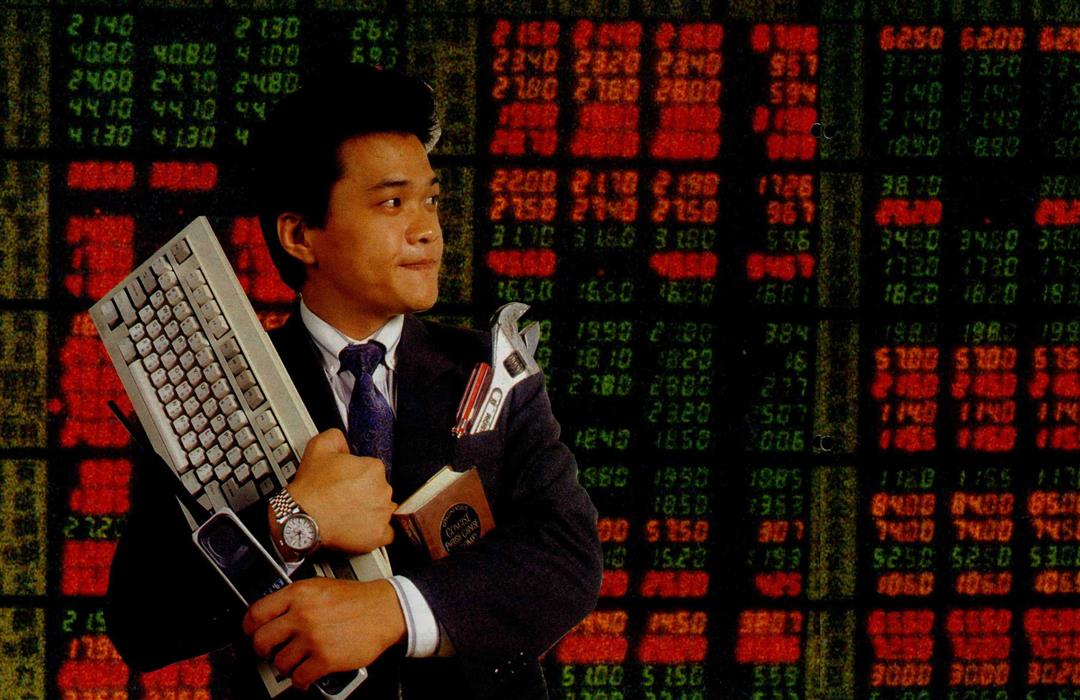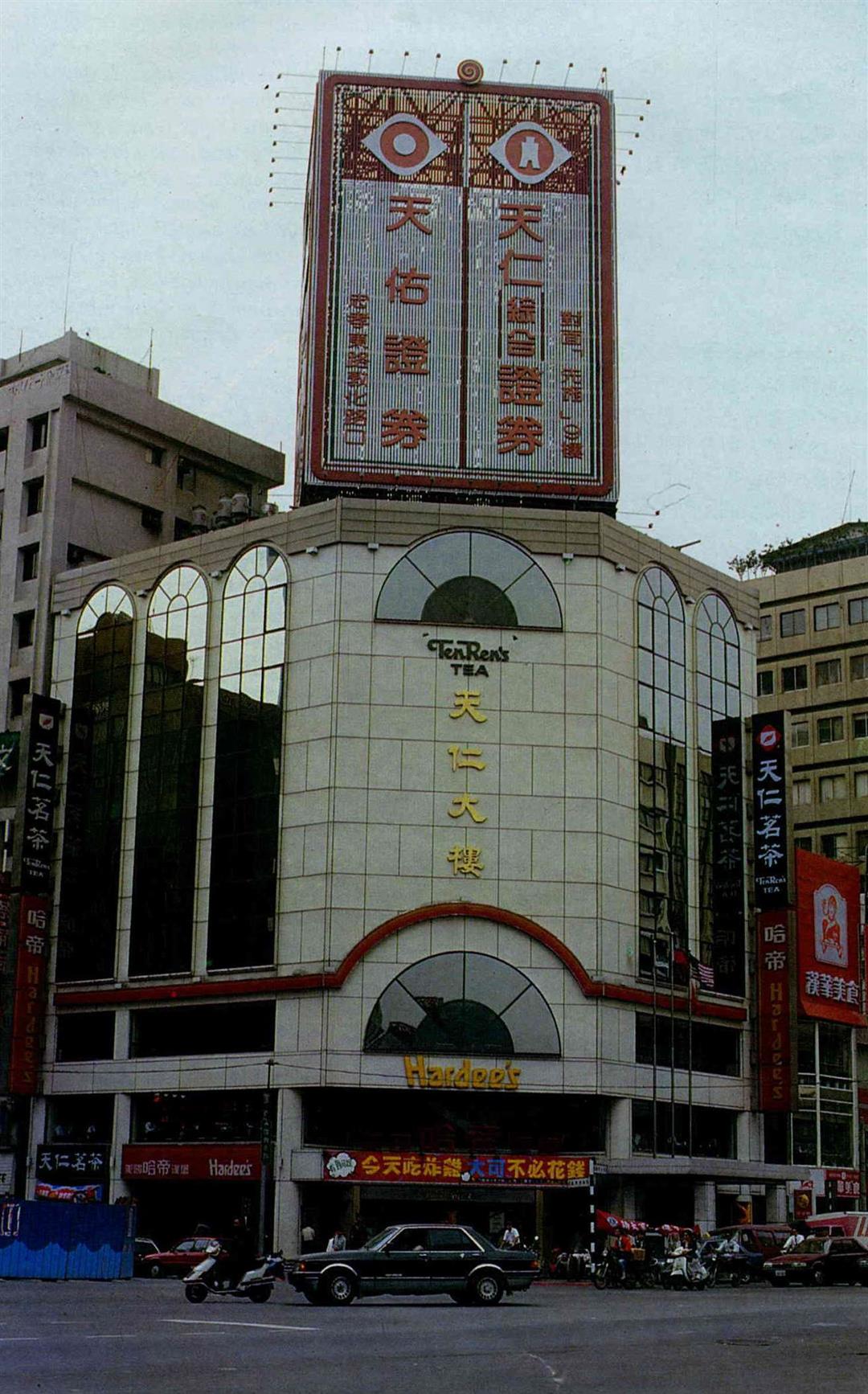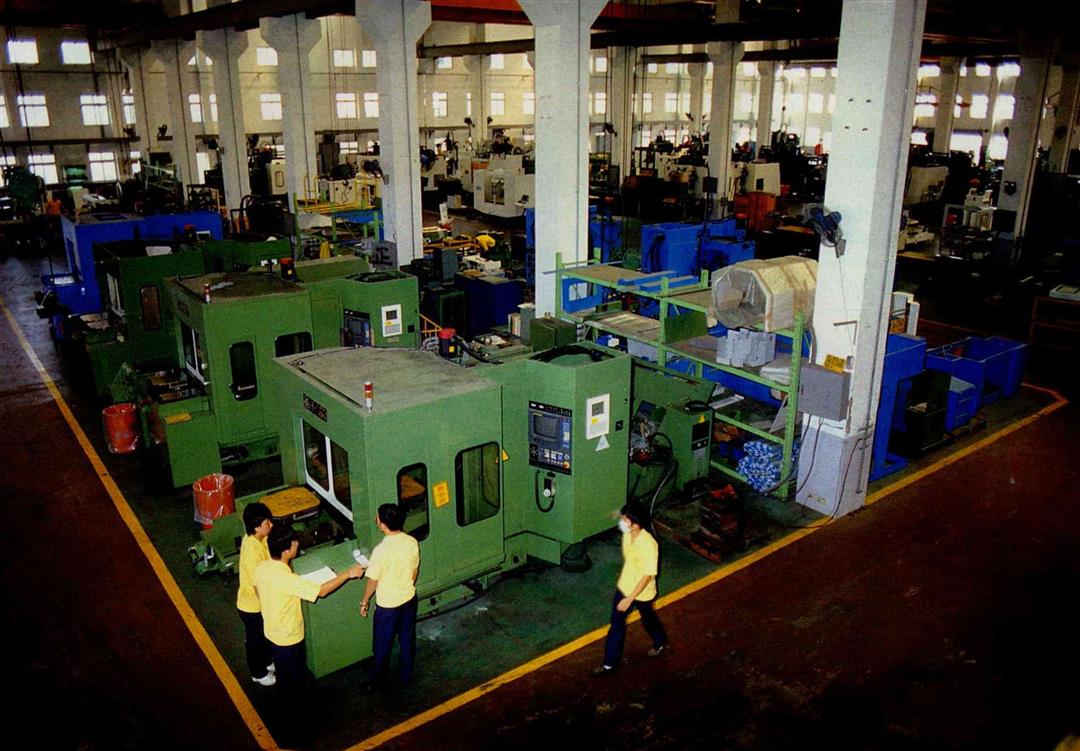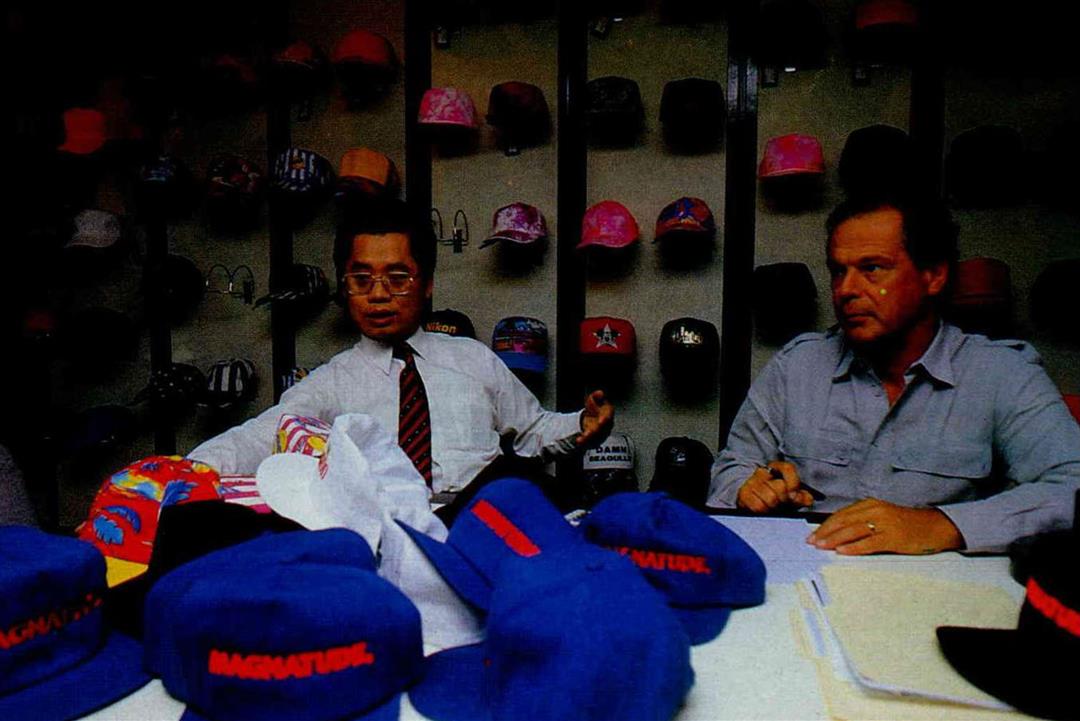
The massive slide in the Taiwan stock market has caused a number of enterprises which were previously enamored of the market to suffer major damage. Today, most of them have already gone back to trying their previous endeavors. What can be said about their chances and operating methods?
Amidst recent ups and downs, there have also been some real winners. Even with the large appreciation of the NT dollar, over the past five years, ROC exports have not declined; on the contrary they have increased, revealing the growth and strength of those who devoted themselves to their original industries. How have they done it?
Fall arrived early this year, and the chill of winter is thus drawing near. It's already predictable that Taiwan will have a frigid-winter indeed. This is truer still for the business community.
At the beginning of the year the subjects for chatter among business people were investment transformation, factory expansion, internationalization, mergers. . . . Bringing with it excited expressions and broad smiles, this indulgence touched everyone.
After only a few brief months, talk rapidly turned to other themes. Now almost all plans for expansion have been put on the back burner, and frugality and cost-cutting are the new topics for business people.
The reason is that after the collapse of the stock market, humbled businesses are determined to "win back lost ground."
Ten Ren Group is a classic case.
In June of this year, the news exploded that Chen K'un-yue, financial director of Ten Ren Group, had taken it upon himself to use the company's accounts to lend money to friends and family to undertake buying on margin, digging a NT$3 billion hole.
When the financial crisis hit, fortunately former Chairman of the Board Li Jui-ho was there to face the problem. He took personal responsibility for the whole debt, minimizing the harm. But undoubtedly in this healing process, the company's development will be slowed: "It is estimated it will take three years to strengthen the structure," says Alex R. Ferng, group vice president of Ten Ren Group.
After this incident, "The steps taken by managers will be much more cautious, and as for the focus of operations, this will revert to the original field--tea. Diversified operations will continue to go forward, it's just that they will tend toward putting out food products similar to the basic product," further explains Alex Ferng.
Similar cases are all over the place.
Looking back at the stock market, from 1986 when the index first broke 1000, it took only three years to set the startling record of 12,682.
In the same period, the main torchbearer of Taiwan's economic miracle -- manufacturing--faced a multiple-front war with growing labor and environmental consciousness, rising wages, a shortage of labor, and rising operating costs, on top of which was added a large appreciation of the NT dollar, which affected export competitiveness.
"Given the outrageous upswing in the stock market, in one day one could generate a month's or even half a year's profit. This caused the business sector to lose faith in making money the old-fashioned way--by earning it," notes C.H. Wang, spokesperson for Eagle Holding Corp.
One entrepreneur who made his way in the lighting business accumulated a small fortune through years of hard work. When the NT dollar appreciated, profits got thin. He turned over his futureless factory to his inexperienced wife, and threw himself full force into stock manipulation. At first he committed his own capital, and earned great profits. That drew in the capital of his friends and family, which he also used for manipulation.
A number of people went back to the trough repeatedly. A few bold entrepreneurs began to excessively expand credit, and not only in the direction of illegal security loans--some even took their letters of credit and turned right around to mortgage them for loans which went back into the market.
"In theory the stock market should lead and reflect economic performance, but in Taiwan, for the second half of last year the economy had already shown signs of slipping, but stock prices went right against the current, even breaking the 10,000 mark, causing not a few smart entrepreneurs to throw caution to the winds," says Hung Tai Securities analyst Angela Huang.
Further, "the mindset of the responsible persons determined the policies of companies," says one person in the business community. Chen Shu, director of the Securities and Exchange Commission, adds that most of the first generation of Taiwan entrepreneurs built their businesses up from nothing through conservatism and stability. Now that the second generation is taking over, "most stress financial management, diversified operations, and straddle across into the financial sector--banks, securities--and it is in these areas that they are most active."
Thus, when the establishment of securities companies was permitted, a number of business people rushed in. This trend of buying and selling stocks through one's own brokers threw gasoline on the fire of a stock market already inclined to speculation.
What was dangerous was that these were all greenhorns, and very aggressive. Beneath the glittering exterior of the stock market there was great danger, which was lightly overlooked.
Take for example Ten Ren Group, which got started in tea, has established more than 70 chain stores across Taiwan, and even has subsidiary companies in the US and Canada. It accepted the invitation from some hometown friends from Nantou county to invest in Ten Ren Group, without having made a detailed assessment of the risk involved in this area. And with rich returns on the investment of NT$300 million on their capital in the first year, Ten Ren's steps grew bolder. In the second year investment soared to NT$2 billion, and the company expanded from an agent to a comprehensive securities firm.
"Because tea leaves are an essential product for daily life, the impact of a recession is small," says Alex Ferng in reflecting back later. With this kind of experience of low sensitivity to economic performance, it was already quite a risk to undertake high-sensitivity stocks. This realization came a little bit too late--after the setback to the market. A lot of businesses that had been sucked in were the same; their enthusiasm rose with stock prices, and they forgot the dangers, and only worried that they might not commit enough. So when the stock prices fell, it was either time to tighten the belt or capital flows dried up altogether. For small and medium enterprises, in August stock certificates were redeemed at a rate of 4.6 per thousand. The balance sheet performance of most companies on the market was also not hopeful: from the reports of the first half of the year, of the 192 companies on the board, 33 reported losses outright.
Getting back to basics is the current direction for most companies. But what chance have they got? Looking at it from the point of view of the domestic and external economic situations, the outlook is not very rosy.
Because just now the world economy is performing poorly, market expansion is extremely tough. At the same time there is inflationary pressure in Taiwan, so that the government cannot devalue the NT dollar to enhance export competitiveness, nor can it adopt a loose money supply policy to free up capital for enterprises. What's more, the drop in the market was just too sharp. Financial institutions are thus using "all necessary caution" in dealing with enterprises involved in the market.
"We're really scared of this type of company. There is a great risk in making a loan, and everybody is very cautious. For those whose products have potential, we help out as much as possible," reveals Chang Hwa Commercial Bank Senior Vice President and General Manager Abel Wang.
Although the outside environment is not optimistic, domestic businesses which use hard work and flexibility to win back lost ground have already begun to display their adaptability, and, working from frugality and reorganization, are stabilizing their positions and planning for another breakout.
In order to save, the first order of business is to cut back on manpower expenses, such as eliminating inefficient departments of personnel, not filling vacancies, and sharing work among other colleagues. Recently there was the case of one magazine whose boss got burned in the market, and the office gophers were fired, and the editors had to help in mailing and in recruiting advertisers.
Besides this, limiting telephones, cancelling newspaper subscriptions, and getting rid of chauffeur-driven cars for the higher-ups are all common.
Outside the fluctuations in the stock market, quite a few companies stuck with their basic products, and while others were wading into the market, they were developing new products and increasing competitiveness.
Two examples are Leadwell CNC Machines MFG Corp. and San Sun Hat & Cap Co.
The Leadwell Corp. is not well known in Taiwan. But in Europe, Leadwell tool machinery is a label that certainly rings bells. The quality is on the same level as Japanese tool machinery, but the sales price is 20% lower. Thus in Canada, England, France, Sweden, and other places, it is the top-ranked imported tool machinery. Because it is high value added, even in the face of the pressure of an appreciating NT dollar they have earnings of 30%.
Paul Chang, chairman of the Leadwell Corp., states that when the local bourse began its wild ride up, he buried his head in product development and market expansion. He had no time to keep up with the jumble of the stock market.
Lately stock prices have dropped. Although United Microelectronics can no longer use cash raised on the market to finance the construction of the plant, and they must borrow from the bank, "even now there's an advantage," says John Hsuan contentedly. "Recently employee turnover has dropped dramatically, people aren't spending their time at work listening to stock reports, and work attitudes are far more serious than before."
"In fact, as for the fall of the market, while from an individual perspective some companies will fall by the wayside, from the overall point of view, its not necessarily not 'bullish' for economic development," points out Yeh Wan-an, vice chairman of the Council for Economic Planning and Development. Because manpower is going back on the market, a lot of managers who want to get down to business have been relieved of the problem of a shortage of hands. As the labor supply goes up, the scale of wage increases will decline, which will help lower costs and raise international competitiveness. It is even more important for economic development that enterprise leaders get back to basics.
It seems that no matter when, there are always winners, and this wave of winners is hard at work trying to pull off a second spring for the Taiwan economy.
[Picture Caption]
In the stock market, businessmen use modern information products to undertake "financial" management." Looking back at their original industries, will they be able to take the same step? This is a problem requiring deep thought.
The Ten Ren Group "mistakenly got involved" in the securities business, and paid a great price.
When the stock market was on its wild ride up, "talent seeking" was tough going for business; after the fall people are returning to the nest. (photo by Vincent Chang)
The only real road out for businessmen is product upgrading. This is the main direction of work for Taiwan's Leadwell CNC Machines Manufacturing Corporation.
With the appreciation of the NT dollar and rising wages, how is the San Sun Hat and Cap Company able to keep making a profit? General manager S.T. De (at left) has the secret.

The Ten Ren Group "mistakenly got involved" in the securities business, and paid a great price.

When the stock market was on its wild ride up, "talent seeking" was tough going for business; after the fall people are returning to the nest. (photo by Vincent Chang)

The only real road out for businessmen is product upgrading. This is the main direction of work for Taiwan's Leadwell CNC Machines Manufacturing Corporation.

With the appreciation of the NT dollar and rising wages, how is the San Sun Hat and Cap Company able to keep making a profit? General manager S.T. De (at left) has the secret.


-13@List.jpg?w=522&h=410&mode=crop&format=webp&quality=80)

@List.jpg?w=522&h=410&mode=crop&format=webp&quality=80)


